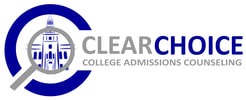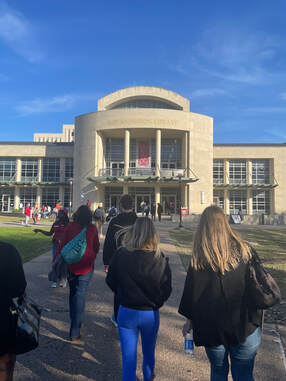“When should we start visiting colleges?” Though I get this question from families a lot, I never tire of it. It tells me that they understand there is value in visiting colleges — and not just after their child has been admitted.
Of course, physically visiting colleges is not the only way to learn about them. Virtual tours, guidebooks like The Fiske Guide to Colleges, and data-centric sources like College Navigator can also be invaluable in helping college-bound high school students find the right college for them.
But how early should high schoolers begin this process? I personally believe the ideal time to start seriously researching colleges is sometime between the beginning of summer after sophomore year and late fall of junior year. That may feel early to parents who, like me, didn’t think about their own college lists until much, much later.
But with the rising cost of college, the inaccessibility of state flagships that were once considered back-ups, and an accelerated application timeline, students and their families can no longer wait that long. A recent report revealed that a rising number of colleges and universities are filling more half of their freshman class through early decision or early action deadlines, which usually fall between October 15 and November 15 of senior year.
Furthermore, if a student is truly searching for a good fit, the process of visiting schools will be multi-tiered. Think of it like buying a car: You might start out with a type of car in mind — say a full-size SUV. So, you visit a couple of different dealerships to check out and test drive different models. While you’re there, you run across a mid-size SUV that captures your heart. Now your search has widened or maybe even shifted. You discover that there are other mid-size SUVs that may even have more features you like and cost less. Or maybe there’s one that costs more, but it is so perfect for your lifestyle that you’re willing to pay a little more for it. You weigh these pros as cons as you continue to check out the different options and visit dealerships where those models are available. Ultimately, you land on the one car you are going to buy. Though it may have a few things in common with the one you set out thinking you wanted, it is not the same. But it is better for you.
That is what the college search process is like. Students — and parents — often start out with a particular college or type of college in mind, but they haven’t yet visited it, and they really couldn’t tell you anything about the other choices out there. Or maybe they have no idea what they want. Either way, they will benefit from researching and visiting different types of colleges to give them some context: What is a large public university like? What is a small liberal arts college like? What about a mid-size school? What “features” do they offer? What will it cost? (Just like with cars, colleges rarely cost the advertised sticker price). Once the family has that information, they are ready to move on to a more targeted search for a particular kind of school. In the end, the ones they end up applying for may not be the first few they researched or visited.
So what does all this have to do with the college search timeline? Well, as you can see, a thoughtful college search does not happen in a weekend or even a month. It usually takes several months (especially when college visits are confined to holidays and a couple of excused absences). Students may visit a few regional colleges in the fall of junior year and decide they only like one of them but discover there are others like it in other states. Out-of-state visits take advance planning and time. Maybe they have to wait until Spring Break or summer. In the meantime, the information the student gleans from each visit or piece of research is at work in the back of his or her mind, synthesizing with other bits of information they learn about themselves and their goals for the future. With every new piece of information, the student has a clearer picture of who they are, what they want, and what is possible. That process takes time.
So, if beginning this process early is so important, why not begin freshman or sophomore year? There are a number of reasons for this, but top among them are 1) readiness and 2) burnout. Freshmen are barely adjusting to high school; they simply aren’t ready to seriously begin looking for their college home. And beginning even as early as sophomore year can lead to college search fatigue. That’s not to say there is harm in visiting a college or two here and there if, say, the family is on vacation near a college they think is cool. They can kick a few tires and begin to form an image of what college is like.
As in all things, balance is key. College is an important decision and deserves sufficient thought and research. At the same time, it has its place. High school is important too, and students need to be able to experience what it has to offer without the weight of their college future hanging over them every second. This is my philosophy, anyway, and the timeline I create with my clients. If you’d like to work with me on your own child’s college search, send me an email.

